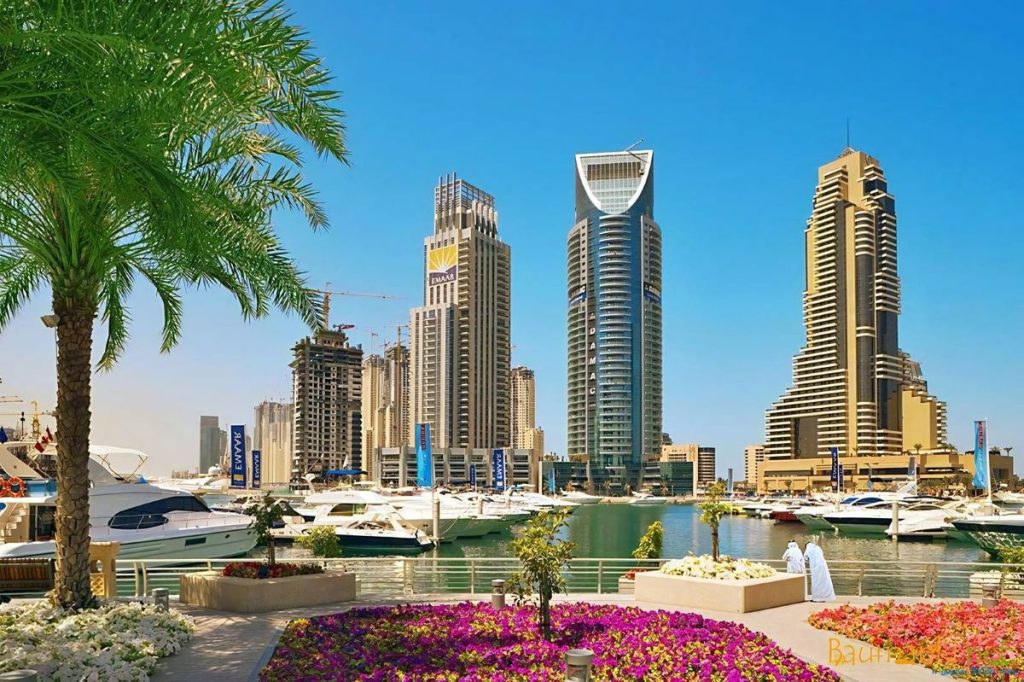Why Buy Business in Dubai
To buy business in Dubai is not just a financial transaction; it is an entry point into one of the most dynamic and rapidly growing economies in the world. Dubai has established itself as a global hub for trade, real estate, finance, tourism, and technology. Its forward-looking policies, investor-friendly regulations, and consistently growing economy have made it a top destination for entrepreneurs and investors from across the globe. Whether you are looking for tax efficiency, access to international markets, or strong consumer demand, Dubai provides a unique ecosystem that makes it highly attractive for business ownership.
Economic Advantages and Tax Benefits
Dubai’s rise as a business destination is closely linked to its economic diversification strategy. While much of the Gulf region historically depended on oil revenues, Dubai shifted its focus to sectors like trade, real estate, tourism, logistics, and technology. As of 2023, oil contributes less than 1% to Dubai’s GDP, highlighting the emirate’s resilience and diversified economic foundation.
One of the strongest reasons investors choose to buy business in Dubai is the favorable tax structure. The emirate offers:
- Zero personal income tax
- Zero capital gains tax
- Competitive corporate tax regime, with exemptions available in free zones
- No restrictions on profit repatriation
For entrepreneurs, this translates into higher retained earnings and an environment where reinvestment is encouraged. Compared to global business hubs like London or Singapore, Dubai’s tax benefits are often more favorable, particularly for small and medium enterprises seeking quick scalability.
Strategic Location and Global Connectivity
Dubai is strategically located between East and West, serving as a bridge between Asia, Europe, and Africa. More than two-thirds of the world’s population can be reached within an eight-hour flight from Dubai, making it an ideal headquarters for businesses targeting international markets.
The emirate is home to Dubai International Airport (DXB), one of the busiest airports globally, and Jebel Ali Port, the largest port in the Middle East. This connectivity enables businesses to easily import, export, and expand regionally and internationally.
For example, an entrepreneur buying a trading company in Dubai gains immediate access to well-developed logistics infrastructure. Likewise, service-oriented businesses—from IT startups to consultancies—benefit from Dubai’s growing reputation as a regional headquarters for multinational corporations.
Strong Demand from International and Indian Entrepreneurs
Dubai’s cosmopolitan environment is another significant draw. Over 200 nationalities live and work in the city, creating an ecosystem that fosters innovation, cultural exchange, and consumer diversity. Among these, Indian entrepreneurs have emerged as one of the most influential business communities.
Indians account for a substantial share of Dubai’s expatriate population, and they are active across sectors like retail, real estate, hospitality, and professional services. For business buyers from India, Dubai offers:
- Familiarity with community networks: Indian-owned businesses in Dubai range from small enterprises to billion-dollar conglomerates.
- Proximity to India: With multiple daily flights between Dubai and Indian cities, travel for business or family purposes is highly convenient.
- Tax-free environment compared to India: The absence of income tax provides a significant incentive for entrepreneurs.
This strong base of Indian investors makes Dubai a natural extension for business expansion.
Why Entrepreneurs Choose Dubai
To summarize, here are the main reasons why international entrepreneurs prefer Dubai when deciding to buy or establish businesses:
- Tax-free personal income and capital gains
- Access to global markets through world-class ports and airports
- Strong infrastructure in real estate, logistics, and technology
- Stable government policies and pro-investment regulations
- Cosmopolitan lifestyle with high safety standards
- Large expat population creating diverse consumer demand
- Robust Indian business community and global networking opportunities
Table: Economic Indicators Comparing Dubai, London, and Singapore (2023 Data)
| Indicator | Dubai | London | Singapore |
| Personal Income Tax | 0% | Up to 45% | Up to 22% |
| Corporate Tax (Standard) | 9% (with exemptions) | 19% | 17% |
| Ease of Doing Business Ranking | Top 20 globally | Top 10 globally | Top 2 globally |
| GDP Growth (2023) | 3.3% | 0.5% | 1.5% |
| Expat Population Share | 88% | ~15% | ~40% |
This comparison shows how Dubai combines low taxation with high growth, making it uniquely attractive for business buyers.

How to Buy Business in Dubai Safely
When considering whether to buy business in Dubai, investors must look beyond the economic opportunities and focus on the legal and regulatory framework that governs commercial activity in the emirate. Dubai has created a transparent, investor-friendly environment, but ensuring compliance with rules is essential to protect your capital and maximize long-term growth. Understanding licensing structures, the role of free zones versus mainland companies, and the common risks faced by entrepreneurs will help you navigate the market securely.
Legal Framework and Licensing Options
The legal backbone of Dubai’s business environment is designed to support foreign investment while maintaining regulatory clarity. All businesses must be registered either under the Dubai Department of Economy and Tourism (DET) for mainland companies or within a specialized free zone authority.
Licensing is central to the process. When you buy business in Dubai, you must select the right license category that aligns with your operations. The three main types are:
- Commercial License – for trading and retail businesses
- Professional License – for service providers like consultancies, IT firms, or educational institutions
- Industrial License – for manufacturing and production activities
For example, a logistics company purchasing an existing warehouse operation in Dubai must obtain a commercial license from the DET or a free zone such as JAFZA (Jebel Ali Free Zone). Choosing the wrong license can lead to operational delays, penalties, or even suspension of activity.
Role of Free Zones and Mainland Companies
One of the unique aspects of Dubai is the coexistence of free zones and mainland business structures. Both offer opportunities, but the choice depends on your target market and ownership preferences.
| Factor | Free Zone Company | Mainland Company |
| Ownership | 100% foreign ownership allowed | Foreign ownership allowed (up to 100% in most sectors since 2021) |
| Market Reach | Limited to free zone & international trade | Can operate across UAE market freely |
| Tax Benefits | Corporate tax exemptions in many free zones | Standard 9% corporate tax applies |
| Office Requirements | Often mandatory to lease office space in zone | Flexible; co-working and offices available |
| Popular Examples | DIFC, DMCC, JAFZA, Dubai Internet City | Retail, F&B, and professional services in mainland Dubai |
Entrepreneurs often start in free zones for full ownership rights and tax incentives, but those seeking direct access to the UAE’s growing consumer market often choose mainland registration.
Common Challenges and How to Avoid Risks
Despite Dubai’s reputation as a secure and structured market, investors must remain cautious. The most common challenges when buying a business include:
- Unverified Ownership or Liabilities – Acquiring an existing business without full due diligence may expose you to hidden debts or legal disputes. Solution: Hire legal advisors to conduct financial and legal checks before purchase.
- Overvalued Business Assets – Sellers sometimes overstate revenue or asset valuations. Solution: Request audited financial statements and independent valuation reports.
- Licensing Mismatches – Operating under the wrong license can result in penalties. Solution: Confirm license alignment with actual activities through DET or free zone authorities.
- High Running Costs – Rent, labor, and compliance costs may vary significantly by sector. Solution: Prepare detailed cash-flow forecasts before finalizing the deal.
- Cultural and Market Differences – Understanding local business etiquette and consumer expectations is vital. Solution: Engage with local advisors and industry associations to adapt strategies.
For Indian entrepreneurs especially, conducting structured due diligence is essential. Dubai is familiar ground, with strong Indian business networks, but legal missteps can quickly reduce profitability.
Why Safety in Business Matters
Investors who buy business in Dubai are not only entering a high-potential market but also making a long-term commitment. Ensuring compliance with regulations safeguards your investment while opening access to government support programs, business-friendly policies, and incentives. For instance, companies in Dubai’s free zones can often benefit from streamlined visa processing for employees, simplified customs procedures, and networking opportunities within specialized industry clusters.
By combining proper legal guidance, selecting the right licensing framework, and mitigating risks early, entrepreneurs can ensure that their Dubai venture thrives in one of the most competitive global markets.

Buy Business in Dubai and Maximize ROI
When entrepreneurs decide to buy business in Dubai, the ultimate goal is not just market entry but securing strong and sustainable returns on investment (ROI). Dubai’s economic model is built on diversification, global connectivity, and pro-investor policies, making it one of the world’s most dynamic hubs for international business. By identifying growth sectors, leveraging the synergy between real estate and commerce, and applying forward-thinking strategies, investors can amplify their financial gains while building long-term stability.
Business Sectors with High Growth Potential
Dubai is constantly reshaping its economic landscape to attract capital from around the globe. For investors planning to buy business in Dubai, the following industries present high growth potential:
- Technology and FinTech – Supported by Dubai Internet City and Dubai International Financial Centre (DIFC), this sector benefits from venture capital inflows and government innovation initiatives.
- Logistics and Trade – With Jebel Ali Port, Dubai Airport Free Zone (DAFZA), and its position as a re-export hub, logistics remains one of the strongest contributors to GDP.
- Tourism and Hospitality – Over 17 million tourists visited Dubai in 2023, driving demand for hotels, restaurants, and entertainment businesses.
- Healthcare and Education – A growing expatriate population creates consistent demand for world-class clinics, hospitals, schools, and universities.
- Green Energy and Sustainability – Dubai’s commitment to the Dubai Clean Energy Strategy 2050 opens opportunities in solar energy, sustainable construction, and environmental solutions.
These sectors are particularly attractive to international entrepreneurs, including investors from India, who view Dubai as a platform to reach both Middle Eastern and African markets.
Real Estate and Business Synergy
One of the unique aspects of Dubai’s economy is the close connection between real estate and commercial enterprises. Investors who buy business in Dubai often find that securing commercial property alongside their business enhances profitability.
For example, an investor purchasing a logistics company in JAFZA can benefit by also investing in nearby industrial warehouses. Similarly, entrepreneurs opening restaurants or retail outlets often achieve higher margins by owning their shop units rather than leasing.
The real estate market complements business expansion in three major ways:
- Asset Appreciation – Properties in prime locations, such as Downtown Dubai or Business Bay, have consistently delivered capital growth.
- Rental Income – Even if a business temporarily slows down, property ownership ensures ongoing cash flow.
- Operational Stability – Owning commercial space shields entrepreneurs from rent escalations and provides greater flexibility.
This dual investment strategy reduces risk and maximizes ROI by balancing operating profits with property-driven wealth accumulation.
Long-Term Strategies for Investors
Success in Dubai is not just about entering the market but sustaining growth over decades. Investors should consider the following strategies:
- Diversification – Combine ownership of a business with real estate, stocks, or technology-driven ventures to minimize risk exposure.
- Reinvestment – Profits from the first venture can be reinvested into scaling operations, entering new free zones, or acquiring additional properties.
- Adaptability – Dubai’s market evolves quickly. Businesses aligned with sustainability, AI, or digital transformation will remain competitive.
- Networking – Joining chambers of commerce, industry councils, and networking platforms ensures access to partnerships and government initiatives.
| Strategy | Short-Term Benefit | Long-Term Value |
| Diversification | Minimizes immediate risk | Builds multi-sector resilience |
| Reinvestment | Increases current revenue | Creates compounding wealth |
| Real Estate Synergy | Adds rental income | Ensures property appreciation |
| Networking | Enhances brand presence | Provides access to new contracts & markets |
The Road Ahead
Dubai’s ability to attract global talent, capital, and innovation makes it one of the safest and most rewarding destinations for entrepreneurs. By choosing high-growth industries, aligning business investments with real estate strategies, and adopting forward-looking approaches, investors position themselves for superior returns.
For those who buy business in Dubai, the opportunity is more than ownership — it is participation in a thriving global hub where commerce, infrastructure, and real estate combine to create unmatched ROI.
Frequently Asked Questions (FAQ)
Question 1: Why should entrepreneurs buy business in Dubai instead of starting a new company?
Answer 1: When investors choose to buy business in Dubai, they save time by acquiring an existing license, client base, and market presence. This reduces setup costs and allows for faster operations compared to launching a new entity from scratch.
Question 2: What are the main risks when you buy business in Dubai?
Answer 2: Common risks include hidden liabilities, unclear ownership structures, or outdated licenses. To avoid issues, investors should conduct proper due diligence, verify documents with the Department of Economic Development (DED) or free zone authorities, and work with licensed consultants.
Question 3: How profitable is it to buy business in Dubai for international investors?
Answer 3: Profitability depends on the sector, but Dubai generally offers higher ROI than many global markets due to its tax-free regime, strategic location, and strong demand. Sectors such as logistics, hospitality, real estate, and technology are especially attractive for entrepreneurs who decide to buy business in Dubai.
Question 4: Can Indian investors easily buy business in Dubai?
Answer 4: Yes, Indian entrepreneurs are among the largest foreign investor groups in Dubai. They benefit from simplified company ownership laws, double taxation agreements between India and the UAE, and strong community networks that support business growth.


